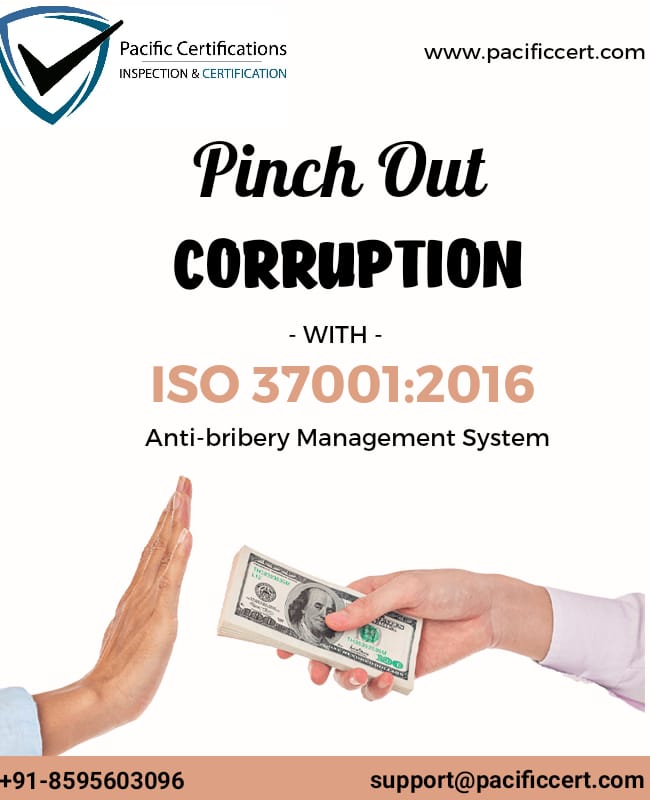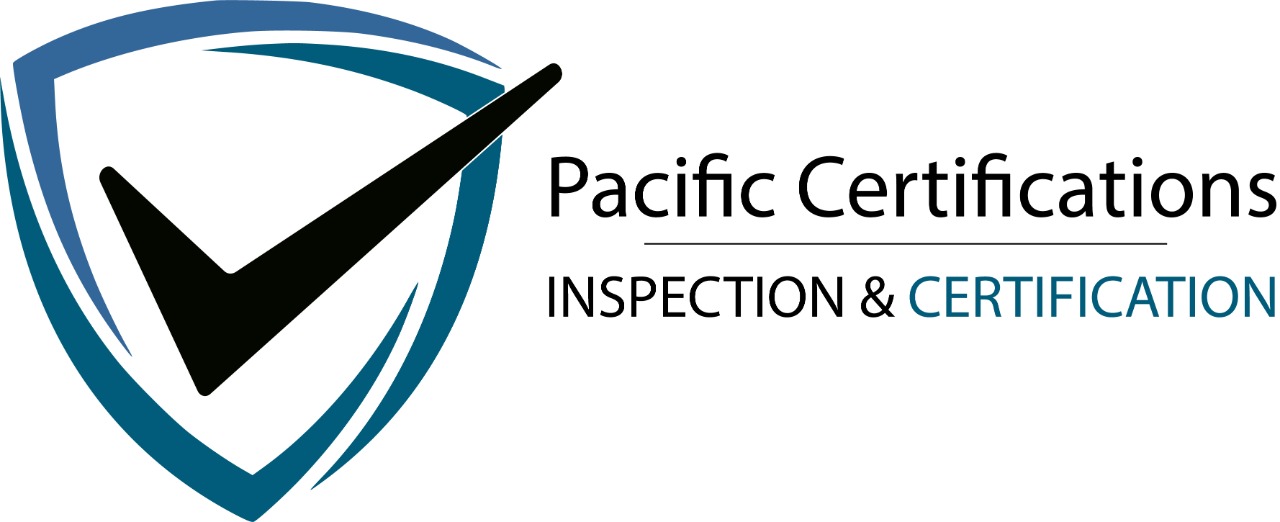ISO 37001:2016 Anti-Bribery Management System-Guide-Certification Audit and Implementation

What is ISO 37001:2016 Anti-Bribery Management System?
Bribery remains one of the most serious threats to fair competition and sustainable growth in both public and private sectors. ISO 37001:2016 establishes the requirements for an Anti-Bribery Management System (ABMS), providing a structured framework to help organizations prevent, detect, and respond to bribery risks. Certification to this standard demonstrates a strong commitment to ethical practices, transparency, and compliance with international anti-corruption laws. For organizations operating in high-risk markets or bidding for government contracts, ISO 37001 has become an essential tool to build trust and protect reputation.
“Integrity is not just a value; it is a foundation for sustainable business. ISO 37001 helps organizations prove that commitment by preventing, detecting, and addressing bribery.”
What are the Requirements of ISO 37001:2016?
To comply with ISO 37001, organizations must implement documented anti-bribery policies, establish preventive controls, and ensure accountability at all levels.
Define the scope of the ABMS, considering internal and external bribery risks, legal frameworks, and stakeholder requirements.
Establish an anti-bribery policy approved by top management, assigning clear responsibilities for governance and oversight.
Conduct risk assessments to identify high-risk areas, business partners, and transactions vulnerable to bribery.
Implement financial and non-financial controls including approvals, segregation of duties, and record-keeping.
Carry out due diligence on suppliers, contractors, agents, and joint venture partners to identify bribery exposure.
Establish confidential reporting and whistleblowing channels, ensuring protection against retaliation.
Provide regular training and awareness programs for employees and relevant stakeholders.
Perform internal audits and management reviews to evaluate effectiveness and compliance with ABMS requirements.
Take corrective actions to address nonconformities, incidents, and identified risks, ensuring continual improvement.
Tip: Integrate the ABMS into existing compliance and governance systems, and align it with other standards such as ISO 9001 or ISO 27001 to ensure efficiency and consistency across operations.
What are the Benefits of ISO 37001:2016?
Certification delivers ethical, operational, and reputational advantages while strengthening compliance and stakeholder trust:
Stronger corporate reputation through an independent demonstration of anti-bribery commitment and integrity.
Reduced risk of financial penalties, litigation, and regulatory investigations linked to corruption.
Improved governance and accountability across financial and operational processes.
Increased trust from clients, investors, and regulators by showing compliance with global best practices.
Enhanced competitiveness in tenders and contracts, particularly in government procurement.
Better employee awareness and engagement in ethical practices through structured training.
Continual improvement of anti-bribery controls, ensuring resilience in changing regulatory landscapes.
Global enforcement of anti-bribery and anti-corruption laws is intensifying. According to Transparency International’s Corruption Perceptions Index, nearly 70 percent of countries scored below 50 out of 100, reflecting widespread risks across industries. The U.S. Department of Justice and the UK Serious Fraud Office reported over $5 billion in corporate penalties from bribery-related cases in the last three years. Organizations that fail to implement strong anti-bribery controls face growing financial, legal, and reputational exposure.
Demand for ISO 37001 certification is particularly strong in sectors such as construction, defense, oil and gas, and pharmaceuticals, where procurement and licensing involve complex interactions with public authorities. A recent compliance survey found that over 60 percent of multinational corporations now include ISO 37001 or equivalent anti-bribery frameworks in their supplier qualification processes. With ESG (Environmental, Social, and Governance) reporting gaining traction, ethical business practices and anti-bribery compliance are now critical metrics for investors and regulators alike.
Certification and Audit Process: ISO 37001
Application and Scope – Define ABMS boundaries and submit documentation to the certification body.
Stage 1 Audit (Documentation Review) – Assessment of anti-bribery policy, risk assessments, and due diligence procedures.
Stage 2 Audit (Implementation and Effectiveness Review) – On-site verification of training, reporting channels, and operational controls.
Certification Decision – Independent evaluation leading to certificate issuance if requirements are met.
Surveillance Audits – Annual audits to confirm ongoing compliance.
Recertification – Conducted every three years.
How to apply for ISO 37001:2016?
To apply for ISO 37001:2016 (ABMS) certification, follow these general steps:
Familiarize yourself with the standard:
Obtain a copy of ISO 37001:2016 and understand the scope and objectives of the standard to assess its applicability to your organization.
Conduct a gap analysis:
Assess your organization's current anti-bribery practices and management system against the requirements of ISO 37001. Identify any gaps or areas that need improvement to meet the standard's criteria.
Develop an implementation plan:
Based on the gap analysis, create a detailed plan outlining the steps, resources, and timeline required to implement an effective ABMS. Assign responsibilities to team members who will lead the implementation process.
Establish an anti-bribery policy:
Develop an anti-bribery policy that reflects your organization's commitment to prevent bribery. Ensure the policy aligns with standard requirements and communicates your organization's stance against bribery to all stakeholders.
Implement the ABMS:
Execute the implementation plan by establishing and implementing the necessary processes, procedures, controls, and documentation to meet the requirements of ISO 37001. This includes conducting a thorough risk assessment, implementing anti-bribery controls, providing training and awareness programs, and establishing reporting mechanisms.
Conduct internal audits:
Perform regular internal audits to assess the effectiveness of your ABMS and identify areas for improvement. Ensure that the audit process is independent, objective, and covers all relevant aspects of the standard.
Corrective actions and improvements:
Address any non-conformities identified during the internal audits by implementing appropriate corrective actions. Continuously monitor the performance of the ABMS and make improvements as necessary to enhance its effectiveness.
Select a certification body:
Choose an accredited certification body that specializes in ISO 37001 certification. Research and select a reputable certification body based on their experience, expertise, and industry reputation.
Certification audit:
Engage the chosen certification body to conduct an external certification audit. The audit will evaluate your ABMS's conformity with ISO 37001 requirements. It typically involves document review, interviews, and on-site inspections to assess the effectiveness and implementation of the ABMS.
Certification decision:
Based on the certification audit results, the certification body will make a decision regarding the certification. If your ABMS meets the requirements, you will be awarded ISO 37001 certification.
Continual improvement and surveillance audits:
After certification, maintain and continually improve your ABMS. The certification body may conduct surveillance audits at regular intervals to ensure ongoing compliance with the standard.
How Pacific Certifications Can Help?
Pacific Certifications, accredited by ABIS, provides independent, impartial, and globally recognized certification for ISO 37001:2016. Our audits assess the effectiveness of your Anti-Bribery Management System, ensuring it meets international requirements and strengthens your organization’s ethical foundation.
With Pacific Certifications, you can:
Demonstrate compliance with international anti-bribery standards.
Build credibility with regulators, investors, and clients.
Enhance your ability to win tenders and contracts where anti-bribery compliance is a prerequisite.
Contact Us
Contact Pacific Certifications to begin your certification journey today!
Author: Ashish
Read more: Pacific Blogs

